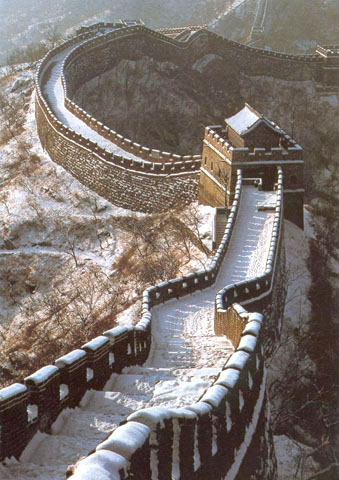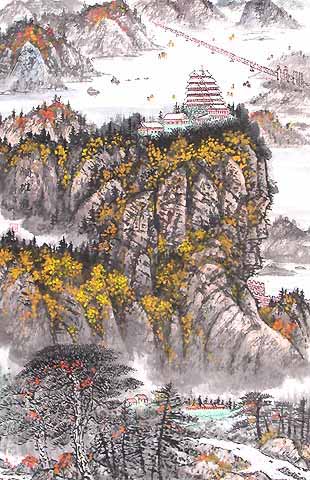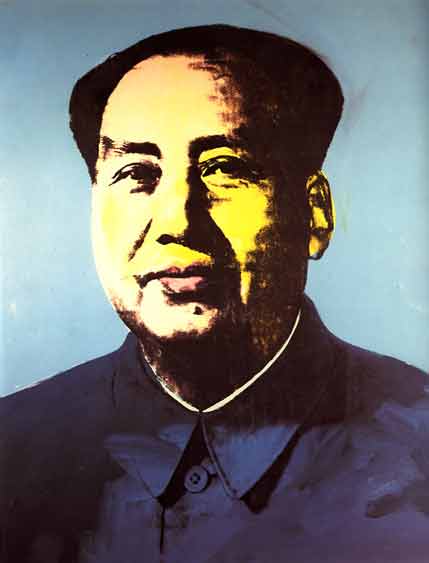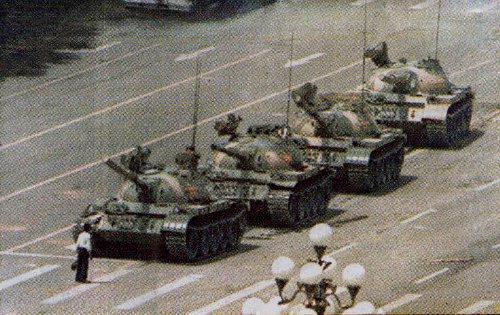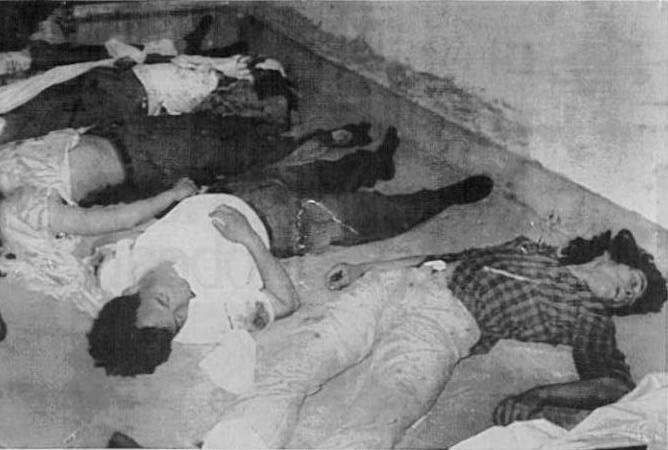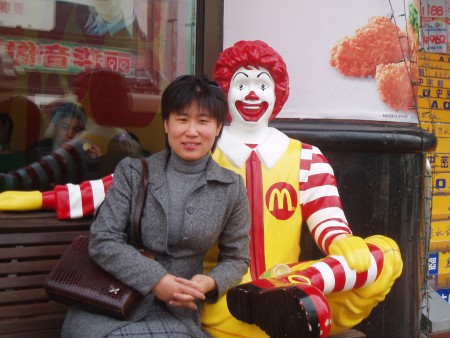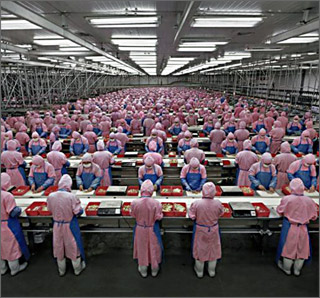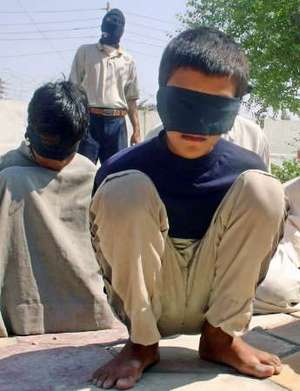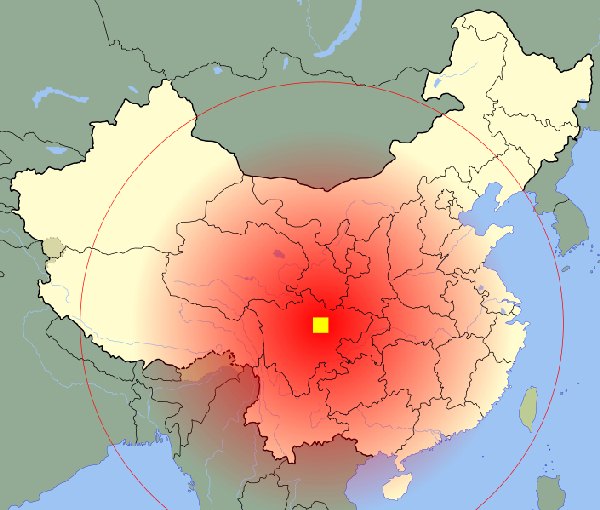|
|
|||||||||||||||||||||||||||||||
|
China: The New Megapower
The People's Republic of China borders with Afghanistan, Bhutan, Burma, India, Kazakhstan, North Korea, Kyrgyzstan, Laos, Mongolia, Nepal, Pakistan, Russia, Tajikistan and Vietnam. It boasts a rich cultural history dating back over 6000 years, the "four great inventions of Ancient China" (paper, compass, gunpowder and printmaking) and China is the world's largest and fastest growing economy. China also built the Great Wall of China to keep out Mongolian invaders, which is approx. 6400 km long and there is a popular urban myth that it can be seen from space (this is false, the wall is too thin to be seen from space). The wall was started in the 6th century BC and took 22 centuries to finish building and requires regular repairs. China is also one of very few countries with ancient pyramids built after the end of the last ice age. Most of China's pyramids are in the Shaanxi Province in central China, near the city Xi'an. Ancient pyramids are also found in Central & South America, Egypt, Iraq and Nubian Sudan. See Ancient Architecture. If the 20th century belonged to superpowers like the United States and Russia, then the 21st century belongs to megapowers like China (and possibly India). It really comes down to demographics and productivity. China has over 1.3 billion people compared to the world's overall population of 6.6 billion. China's GDP in 2007 was $7 trillion, which is 11% of the world's overall GDP of $65 trillion for the same year. Global GDP output rose by 5.2% in 2007, led by China (up 11.4%), India (up 9.2%), and Russia (up 8.1%).
Now you might ask what is the difference between a superpower and a megapower? A superpower implies a successful society built on technological and economic advancement, but a megapower uses both of those improvements plus sheer numbers. 1.3 billion Chinese and 1.1 billion Indians means that these two countries have a demographic advantage over other countries due to the availability of both cheap and skilled labour. Also, thanks to modern economics, money tends to gravitate to the places that have most people, the most productivity and the most purchasing power. Interesting Fact: China has 20 of the world's 30 most polluted cities. In China's cities there is constant economic improvements going on all the time. Over one quarter of the world's labour force lives in China and because there is almost no welfare system it means you either work or you die. The unemployment rate in urban areas is 4%, but unemployment in rural regions is difficult to track because so many people rely on farming for their food and income. The Chinese government is trying to bring more economic development to rural areas, but progress is thus far difficult to determine.
The Rise of CommunismChina's rise to power however is largely due to the economic controls of its ruling authoritarian Communist party. In 1912 the Republic of China was formed due to mass civil disorder and the desire for a modern democracy at the end of the Qing Dynasty. Empress Dowager Longyu (the Emperor at the time was a 6 year old boy) signed the abdication decree as regent in 1912. The presidency was given to former general Yuan Shikai, who had the backing of the Beiyang Army. In 1915 Yuan proclaimed himself Emperor of China but was forced to abdicate by own army and the general populace. Yuan died in 1916 and the country was divided between factions and warlords. The country was later united under the Kuomintang Party (KMT). Between 1937 and 1945 the Sino-Japanese War (part of World War II) caused the deaths of 10 million Chinese civilians, during which the Communist Party grew both in number and strength. A civil war between communists and nationalists broke out in 1947 and after achieving victory in the Chinese Civil War, the Communist Party of China, led by Mao Zedong, gained control of most of the Mainland China, and led to the formal independence of the island of Taiwan. Under Chairman Mao's rule China experimented with different economic projects including the "Great Leap Forward" in the 1950s and the Cultural Revolution of the 1960s, both of which did little to strengthen China's education system and economics. After leader Mao Zedong died in 1976 a pragmatic reformer by the name of Deng Xiaoping took the helm of China's economy in 1978 and turned the country around with a strong dose of capitalism, economic reforms and improvements in education. Under his leadership China's productivity more than quadrupled by the time he finally retired in 1992. He wasn't without corruption however, as he ruled China from a military post instead of the post of General Secretary. Hu Yaobang was the General Secretary, but he was more of a puppet despite his outspoken views. Note: China's political system is set up to give power to both the President and the Secretary General. The President is really the Communist Party Chairman, and was called that in English until 1982 when the translation was officially changed to president. The Secretary General is ranked higher than the president.
Tiananmen SquareDeng Xiaoping's retirement however was largely effected by the disastrous Tiananmen Square protests of 1989. The protests were triggered by the death of liberal Hu Yaobang, who had advocated freedom of speech and freedom of press in 1986 and later forced to resign from his position of General Secretary. Public mourning for Hu Yaobang was widespread and student protesters upset with corruption and nepotism ended up converging on Tiananmen Square to create a pro-democracy protest. Pro-democracy protests however were not liked by Communist Party hardliners, who on May 20th 1989 decided to send in the army and tanks to dissperse the rabble. An estimated 7,000 - 10,000 civilians were tortured and killed on the stones of Tiananmen Square. Critics accused Deng Xiaoping of suppressing any signs of political freedom and he eventually retired from the political scene in 1992. Deng Xiaoping died on February 19th 1997.
The Surge of CapitalismIn the wake of the Tiananmen Square Massacre Jiang Zemin became the new General Secretary. Jiang continued to legitimize capitalism, but really was just a transitional leader until a stronger leader could be found. A surge in organized crime, unemployment, government corruption was largely ignored while Jiang Zemin poured most of China's wealth into coastal cities and development, largely ignoring rural regions. Thus it is small surprise that China's cities have seen a huge surge in wealth, turning China's manufacturing centres into areas of constant growth. China's economy has grown an average of 10% every year since 1990, despite the 1997 Asian Financial Crisis during which Thailand effectively went bankrupt due to collapse of its currency (many Asian countries had too much debt and their currencies slumped in value). China weathered the financial storm and by 1999 the Asian markets had recovered. Under Jiang Zemin's leadership he also created a crackdown on the Falun Gong spiritual group (branded as a cult in China), and made a groundbreaking state visit to the United States in 1997, and a second visit in 2002. He retired in 2003 and was replaced by Hu Jintao.
Hu Jintao, having taken both the office of the presidency and the office of the General Secretary, is largely conservative with his economic reforms. An advocate of peace, Hu's political philosophy is to create harmony and prosperity, focusing on China's poorer regions and a more balanced view on economic growth due to China's growing environmental concerns. China's booming economy has reached a point where there is a growing middle class and a surging demand for cars and oil. China's demand for oil is so fierce that they are even building a factory to convert coal into gasoline, and financing an American built oil pipeline from Iraq, through Iran and Afghanistan to China's border with Afghanistan. China and India are both demanding bigger slices of Middle Eastern oil and oil prices are skyrocketing as a result as investors bid against each other for OPEC's oil. OPEC believes oil prices will reach $170 before 2009. Some oil insiders believe prices will skyrocket to $200/barrel by 2010 due to the demand in China and India. Interesting Fact: In 1985 average income in China was $293; in 2006 the average income is $2,025.
Olympics, Tibet and Human RightsChina has a long history of human rights abuses. The Tiananmen Square Massacre is barely the tip of the iceberg. In 1950 the Chinese People's Liberation Army invaded Tibet and defeated the Tibetan army. Tibetan representatives, without the Dalai Lama's approval, signed the "Seventeen Point Agreement" which gave Tibet's sovereignty to China in 1951. The Chinese government then setup local people as landlords, and later executed those same people in 1959 when the Dalai Lama fled the country with the help of the American CIA, claiming they were liberating the people from its corrupt landlords. Since then Tibetans have frequently rebelled against their oppressors, most notably in 1959. The Chinese went about destroying Tibet's cultural history, destroying approx. 6000 Tibetan monasteries during the 1960s. Unknown thousands of Buddhist monks and nuns were slaughtered, tortured and imprisoned. China is hosting the Olympics in 2008 and Tibetan and foreign protestors have used the media spotlight to draw attention to China's list of human rights abuses. Much of China's human rights problems is the result of a lack of laws governing civil rights:
China has no laws ensuring due process. China had no laws ensuring freedom of speech until 1982's constitution, but there is a clause in it that says anyone guilty of "subversion" can be imprisoned for criticizing the government. The Chinese government controls most of the media outlets, and those it doesn't are frequently shut down and silenced for subversion. Chinese law forbids the advocation of independence or self-determination for territories controlled by China, such as the Free Tibet movement, Taiwan as an independent state, certain religious organizations and anything remotely questioning the legitimacy of the Communist Party of China. China's official religion is Atheism, but it enforces it with an ironfist and persecutes religious groups it considers to be cults. China has stright internet controls, blocking any mention of the Tiananmen Square massacre and criticism of China's human rights reputation. Chinese judges are appointed by the State and the judiciary, resulting in a lot of legal nepotism and corruption. China's citizens don't have the freedom to decide where they want to work. They have a permit system governing rural and urban workers, and rural workers have to apply for a permit to move to a city to find work. Urban workers enjoy a plethora of privileges and rural peasants are basically 2nd class citizens. This system is frequently compared to the passbook system in apartheid South Africa. During China's Cultural Revolution (1966-1976) the Communists had many religious buildings looted and destroyed. The 1982 Constitution guarantees the right to religion, but this is limited to government sanctioned religions and anything else is considered to be a cult. Furthermore sanctioned religions are highly controlled by the government itself and religious teachings are modified and highly monitored by the Communist Party. China's right and left wing dissident political groups are routinely arrested and imprisoned without trial. Incidents of torture, forced confessions and forced labour are widely reported. The goal is to suppress other political parties from ever becoming elected or popular, making the Communist Party the only party with any power.
China's One-Child Policy is an attempt to curb overpopulation, but it has resulted in a massive abortion rate, forced abortions, sterilizations, child abandonment, child slavery (boys sell for approx. $1300 US each) and sex selective abortions (resulting in 118 males born for every 100 females). Rural peasants and ethnic minorities frequently break this law and pay a fine. China has 55 ethnic minorities and racism is rampant in different provinces. Attempts to fix the economic problems between different ethnic groups has resulted in reverse-racism. Government policies have a tendency to discriminate especially against ethnic Tibetans and Uyghurs. According to a Chinese government official China executes an estimated 10,000 political dissidents and criminals per year. Exact numbers are a State Secret, but its basically the result of 68 different crimes that are punishable by death including embezzlement and tax fraud. Many cases don't even go to trial. The Chinese government has approved organ harvesting from Falun Gong practitioners. China considers Falun Gong to be a cult and a terrorist group and so imprisons the religion's followers in work camps and then harvests their organs for wealthy organ recipients. China's workers have little or no rights, so management can fire without reason, bully, abuse or torture their workers and there is a long list of minimum wages violations and unpaid hours. Internet forums in China are highly monitored for "subversion" and people caught are tossed in prison without trial. North Korea is considerably worse than China and North Koreans fleeing the country to China as illegal immigrants have no rights at all. Many of them end up in forced marriages and prostitution. Human rights organizations have criticized China for its supportive relationship with the government of Sudan, which is committing mass killings in Darfur. Sudan trades China oil in exchange for guns and China threatens to veto any United Nations initiatives to counter the crisis in Darfur. China still practices slavery of women and children in some rural regions, although it is illegal the government does very little to stamp out the practice. In 2007 a British documentary about China's black market slavery drew ire from the Chinese government with Chinese officials claiming the problem isn't very big.
In March 2003 an amendment was made to the Constitution of the People's Republic of China, stating "The State respects and preserves human rights." The amendment was more a public relations policy than any intention to do anything. Tibetan Uprising Day (March 10th) commemorates the Tibetan uprising against China's presence in 1959. In March 2008 over 300 monks protested and demanded the release of imprisoned monks. Students and political groups joined ranks and the protest turned violent. Rioting, burning and looting began on March 14. China accused the Dalai Lama of orchestrating the violence, which the Dalai Lama denied and stated he didn't condone the violence, but did understand it. The Dalai Lama also claimed that he supports the Beijing Olympics, saying that it is "deserving for the Chinese people to host the Olympic Games". Protests against China spread to other Chinese cities and were organized around the world during the Olympics torch relay, sometimes with violent results. Protests within Tibet caused an estimated 400 deaths during March 2008. Initially the Chinese government tried to silence the deaths in Tibet and play down the protests, but videos of rioting and deaths were leaked on YouTube and other internet websites.
Sichuan EarthquakeA series of gigantic earthquakes measuring 8.3 in magnitude hit Sichuan province in central China, with the epicentre near the Sichuan capital of Chengdu. The earthquake was felt as far away as Beijing, Shanghai and Hong Kong. Many neighbouring countries also felt the earthquake, including Russia, India, Vietnam, Taiwan and Pakistan. An estimated 90,000 people were killed and as many as 11 million people left homeless. Property damage is estimated in the billions, with various sources estimating $20 billion to $200 billion in damages. Country wide rescue efforts sent 50,000 troops into action and multiple civilian rescue groups. The earthquake caused a series of lakes to form as the land collapsed from beneath and nearby rivers flowed into the areas. China reacted to the disaster "rapidly and with uncharacteristic openness" and evacuated many residents for fear of dams breaking and flooding whole towns and cities. China's hasty response was frequently compared to Burma's secretive lack of response to Cyclone Nargis, which devastated that country 10 days before the Sichuan earthquake. Faulty and cheap construction practices caused many buildings that might have otherwise survived the earthquake to collapse into complete rubble. Amongst these were over 7000 schools that were destroyed and many of the children within killed or injured (since most Chinese families have only 1 child this is even more devastating). The government has responded by denying any faulty construction while simultaneously arresting construction companies and building inspectors. Complaints against the Chinese government's response to the earthquake have resulted in thousands of people being rounded up, threatened and eventually released.
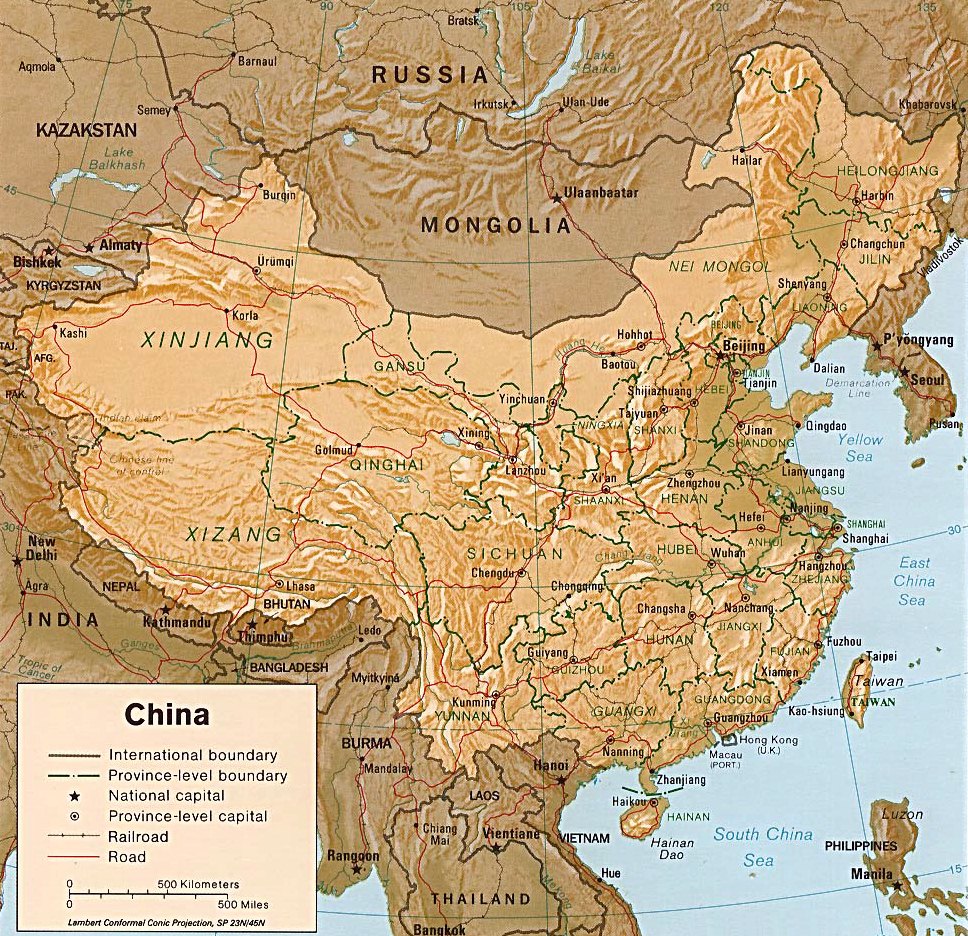
|
|
||||||||||||||||||||||||||||||
|
Website Design + SEO by designSEO.ca ~ Owned + Edited by Suzanne MacNevin | |||||||||||||||||||||||||||||||
